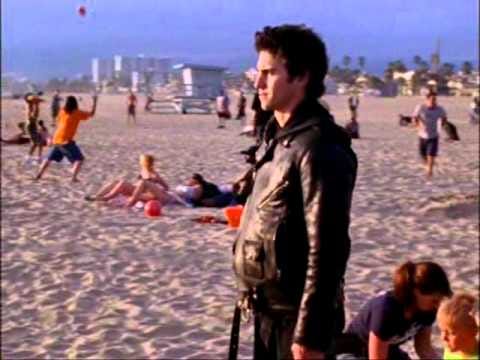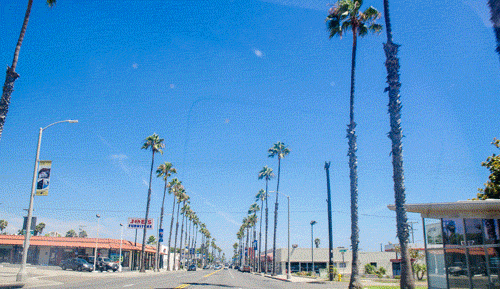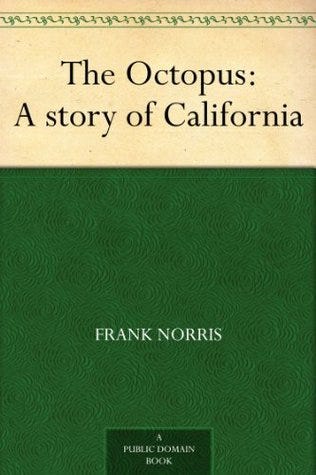Sun and skin and stars and swimming—California’s vibe in popular media is intoxicating if not impeccable. Read on to see what we found.
LISTEN
There are countless Cali croons I could reference here, but I like the sense of movement and interplay between these three:
“California” - Joni Mitchell
Joni is quickly becoming a Ponytail Picks favourite and she kicks things off here with a breezy, folksy yearning for the sunny American state, mourning the “old and cold and settled in its ways” state of her current surroundings. There are plenty of other California road trip tracks I could’ve included here (the infectious 00’s jam by Phantom Planet and the teenage anthem by Christian pop punk band Hawk Nelson are two that come to mind for me), but Joni’s is uniquely poignant with its blues (“Oh, it gets so lonely / When you're walking / And the streets are full of strangers”) and uncertainty (“California, I'm coming home… will you take me as I am?”).
“California Gurls (feat. Snoop Dogg)” - Katy Perry
Almost 40 years after Joni plucks a dulcimer and sings from abroad of her desires for the simple pleasures of sunny weather and familiar faces, Katy Perry cranks up the stereo for this juicy pop jam. No more wishing and waiting for California—Katy’s there and it’s much wilder than the lazy ease Joni conveyed. Peace, sun, friends—bah, you can find that anywhere. No, in California, “there’s something in the water” because “the grass is really greener” and Katy and her group of girls are having a blast with drinks in hand and sex on sand (Snoop, meanwhile, is barely making sense—“Bikinis, zucchinis, martinis / No weenies”—and hanging on by a thread. This is Katy’s song). Despite their differences, Joni’s and Katy’s songs share a common sentiment: “You could travel the world / But nothing comes close / To the golden coast.”
“California Dreamer” - Wolf Parade
Frigid Montreal-based indie rockers Wolf Parade bring the sunny vibes to a car-skidding-on-black-ice halt with this spooky six-minute experimental rock track featuring minor keyboard arpeggios galore. Now we learn about what’s left behind when the Jonis leave their European lovers to return home to the warm Pacific coast, or when the small town America teens grow up and give in to the seductive pull of Katy’s sun-kissed excess. “California dreamer,” singer Spencer Krug sings sadly, “Tell me, why did you go?” His own dreams of a cozy winter for two are dashed: “You quietly gave away the winter clothes I made for you / While I made angels in the snow.” He turns on the radio and thinks he maybe hears his lover (singing a top-40 summer bop, perhaps?) but as fuzzy guitars wail behind him, he feels the distance: “the radio waves were like snow.”
-JB
WATCH
TV Land Visits TV Land
There are plenty of TV shows that take place in Los Angelos, California. But the sheen of Tinseltown tends to get a little lost in these stories. You get desensitized by the overexposure.
Here are a few examples of moments when characters who don’t belong in the Golden State end up there anyway. These fish are out of water, often with poignant and/or hilarious results.
Seinfeld, Season 4, Episodes 1 & 2: “The Trip”
Season 3 of Seinfeld ends with Kramer heading to Hollywood to try his luck as an actor. As we learn in this double feature, things don’t go so well. A chance to perform on Jay Leno’s Tonight Show sends Jerry west for a visit, and George tags along. The inevitable mischief ensues.
The best thing about Seinfeld is that every scene is exploited for jokes. There’s no will-they-won’t-they romance, no political commentary, just four (or in the case of these episodes, three) selfish people being horrible in the most endearing way possible. I can’t think of another show that delivers a line like “somebody else got killed” to make you laugh.
Gilmore Girls, Season 3, Episode 21: “Here Comes the Son”
From the get-go, Gilmore Girls had the hip, cool pop-culture references that let you know there was an ironic wink behind all the melodrama. Jesse Mirano was the embodiment of that.
This episode comes near the end of his arch as a lead character, and the contrast between his Holden Caufield-meets-Lou Reed attitude and the sunny vibes of L.A. makes letting him go all the more difficult. Add the complexity of the son-mirroring-father plotline, and you have an episode almost worthy of its own spin-off series.
Mad Men, Season 7, Episode 14: “Person to Person”
Mad Men is a complicated show because it accurately portrays a complicated time. The series finale is no exception.
At first, the complete un-edginess of “Person to Person” feels like an odd shift for the show. Seemingly every plotline is tied up with a Hollywood-ending bow. The lead character, Don Draper, has driven himself across the country and ends up way off-brand, taking in the Pacific coastline at a meditation retreat centre.
The program’s director, Matthew Weiner, has set you up to feel disappointed with what would in most circumstances be written to satisfy an audience—a happy ending. Then, in the last frames, a knowing smirk arrives on Draper’s/Jon Hamm’s face. The scene cuts to a legendary Coca-Cola commercial, insinuating Don’s exploitation of his seemingly genuine hippie experience. It’s the perfect ending to a show that won its place in television history by playing with our expectations.
Stranger Things, Season 4, Episodes 1-4
The latest installment of Stranger Things comes off a little too clean at first. The two most complex members of the gang, Eleven and Will, have moved to California and are obviously struggling to fit in. It all feels a little too “high school” for a show that, in the past, managed to present genuine emotion in its young characters.
But the Westcoast plot of Season 4 pulls itself out of the after-school-special quicksand and catches up to the depth of the Hawkins crew in Episodes 3 and 4. Eleven’s violent outburst and subsequent arrest add the needed anxiety, but the brutality of the raid on the Byers’ house is what does it for me. Suddenly, that California sunshine doesn’t seem so vapid.
-AK
READ
The Octopus, by Frank Norris
The Octopus isn’t the kind of story you expect to be based in California. It’s not even the kind of story you expect to be called The Octopus. Sure, at the surface level, it’s a classic good-vs-evil underdog tale. But instead of the entertainment industry or an intelligent water-based creature, this one focuses on rise of industrial agriculture.
Norris tells his tale through the eyes of three men: Presley the poet, Annixter the wheat farmer, and Vanamee the shepherd. Through each of their perspectives, we get a sweeping epic that pits the all-powerful tentacles of the railroad against the wheat farmers of the Golden State. But Norris doesn’t leave it as a simple David-and-Goliath dual. Instead, he turns his naturalistic eye on a true tragedy to show just how absolutely power can corrupt the humans grasping for it. If the story romanticizes anything, it’s Nature itself.
Like many old books, I was tasked to read this for a university course. Few if any have held onto my imagination as strongly, maybe because of how relevant it continues to be. I couldn’t recommend it highly enough.
-AK
We hope you enjoyed this digital moment in the sun. Tune in next time, when our interest gets sparked by all things







I know there are literally hundreds of songs, shows, and movies set in California and/or with California themes so it must have been difficult to pick but as a child of the 60s, I am disappointed that the "California sound" of the Beach Boys, the Mamas and Papas, and other bands of that era did not make the cut. "California Girls" and "California Dreaming" are two of the more obvious tracks. Your theme did elicit warm feelings of the music of this era in the midst of the cool and wet "June-uary" weather of the Pacific Northwest.